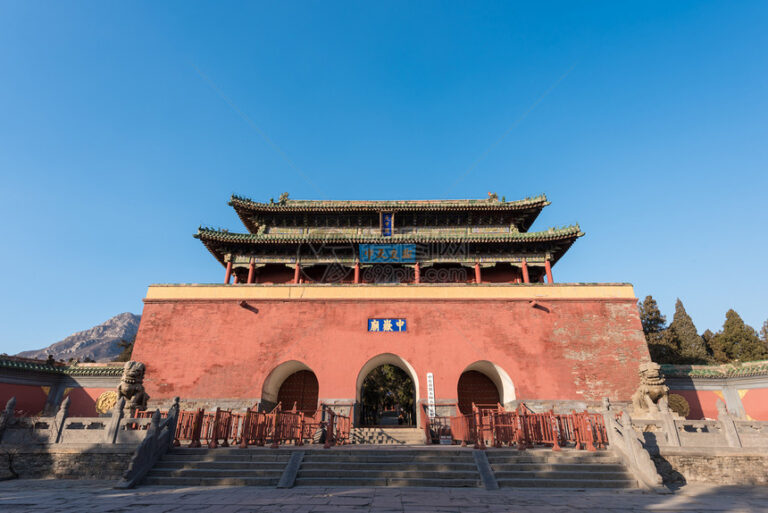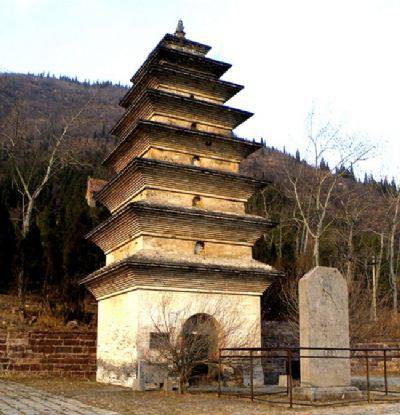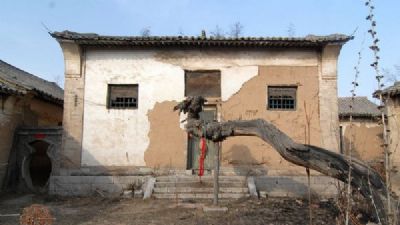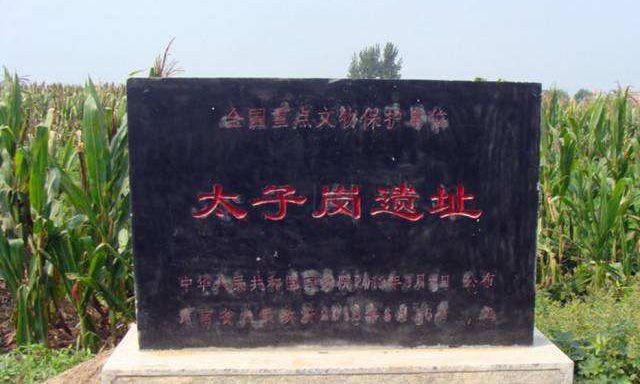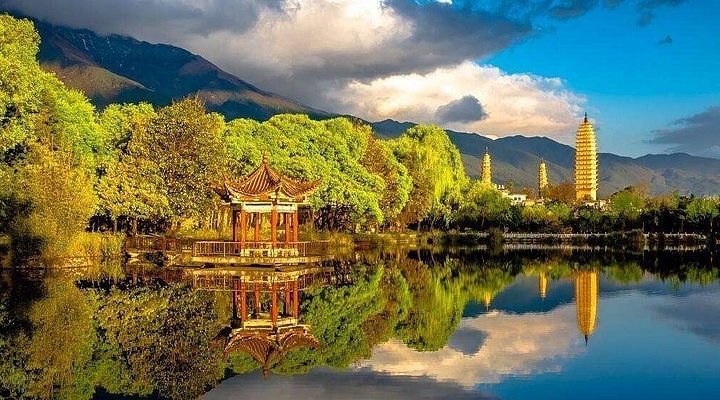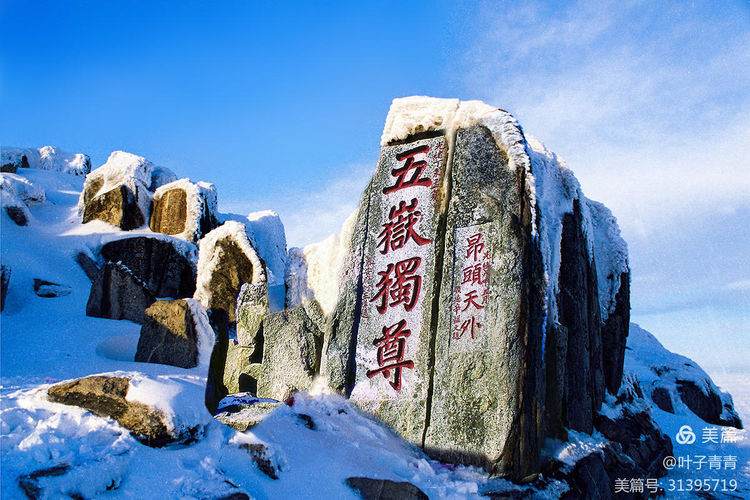Hangzhou Wusi Xianfa Qicaodi Jiuzhi: Where Culture Meets Natural Beauty
An Essential Guide to Visiting Hangzhou Wusi Xianfa Qicaodi Jiuzhi
In This Guide
- An Essential Guide to Visiting Hangzhou Wusi Xianfa Qicaodi Jiuzhi
- The Rich History of Hangzhou Wusi Xianfa Qicaodi Jiuzhi
- Main Highlights: What to See at Hangzhou Wusi Xianfa Qicaodi Jiuzhi
- Planning Your Visit: A Practical Guide
- Tickets, Hours, and Booking
- How to Get There
- Local Cuisine and Accommodation
- Frequently Asked Questions
- Final Thoughts on Your Trip
Nestled along the picturesque banks of West Lake in Hangzhou, the site of the Wusi Xianfa Qicaodi Jiuzhi (the former drafting location of the May Fourth Constitution) stands as a testament to a pivotal chapter in China’s history. This historic villa, where the foundations of the People’s Republic’s first constitution were laid, invites visitors to step into a realm where legislative vision met the tranquil beauty of its surroundings.
In December 1953, Chairman Mao Zedong and a dedicated team embarked on a transformative journey at this very location. Over the course of 77 days, they meticulously crafted the initial draft of what would become the 1954 Constitution, marking a significant milestone in the establishment of a new legal framework for a nascent nation. The serene ambiance of Hangzhou served as both a backdrop and a muse, encouraging deep reflection and spirited discussions on governance, rights, and the future of the Chinese people.
Today, the site has been transformed into a museum that not only preserves the memories of this historic endeavor but also educates visitors about the constitution’s enduring impact on Chinese society. The villa, characterized by its classic architecture, offers a glimpse into the past, showcasing documents, artifacts, and personal items that belonged to the founders of modern China. Visitors can walk through the very rooms where decisions that shaped a nation were debated, making it a unique pilgrimage for those interested in law, history, and the ongoing evolution of China’s political landscape.
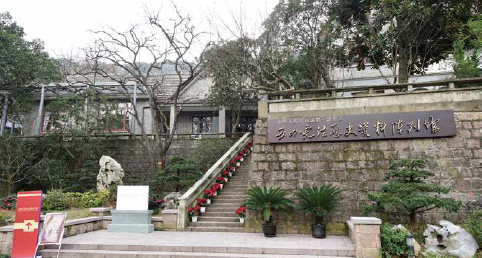
Hangzhou Wusi Xianfa Qicaodi Jiuzhi.
As you explore the Wusi Xianfa Qicaodi Jiuzhi, you are invited to reflect on the intersection of history and law, the ideals that fueled a revolution, and the timeless quest for justice and governance. This site is not just a monument to the past; it is a vibrant part of Hangzhou’s cultural tapestry, beckoning both locals and travelers to engage with the narratives that continue to influence China today.
The Rich History of Hangzhou Wusi Xianfa Qicaodi Jiuzhi
Nestled in the heart of Hangzhou, near the picturesque West Lake, lies the historical site of the drafting of China’s first constitution, known as the “Wusi Xianfa Qicaodi Jiuzhi” (五四宪法起草地旧址). This site is not just a simple landmark; it is a monument to the significant strides China has made in governance and law since the establishment of the People’s Republic in 1949.
In December 1953, Chairman Mao Zedong and a dedicated team of lawmakers embarked on a crucial mission to draft the new constitution of China. Their journey began with a secretive train ride from Beijing to Hangzhou, where they aimed to focus their efforts away from the prying eyes of the capital. For 77 intense days, from December 24, 1953, to March 3, 1954, this site served as their workplace, where discussions and debates shaped the foundational legal document of a new nation.
The drafting process was meticulous and marked by a commitment to democratic principles. Mao established clear guidelines for the drafting committee, emphasizing the importance of factual accuracy over theoretical constructs. He encouraged deep study of existing constitutions from socialist and capitalist countries alike, fostering a comprehensive understanding of governance that would influence the development of the new Chinese constitution.
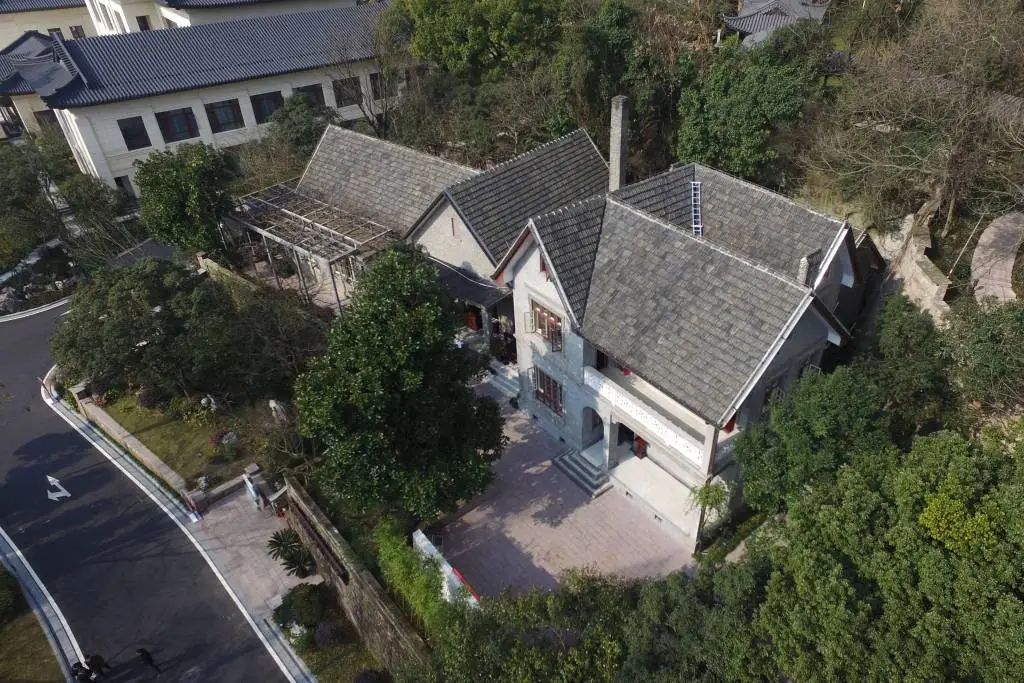
Hangzhou Wusi Xianfa Qicaodi Jiuzhi.
The culmination of their efforts resulted in the “West Lake Draft” (西湖稿), which laid the groundwork for the formal adoption of the constitution during the first National People’s Congress on September 20, 1954. This document not only encapsulated the political ideals of the Communist Party but also reflected the aspirations of the Chinese people for a just and equitable society.
To honor this critical moment in Chinese history, the site has been preserved and transformed into the Wusi Xianfa Historical Material Exhibition Hall. Here, visitors can delve into the rich history of the constitution’s drafting, examining original manuscripts, historical photographs, and artifacts from the era. The hall serves as both a museum and an educational platform, emphasizing the importance of constitutional law in contemporary Chinese society.
The site stands as a testament to the evolution of Chinese governance and the enduring significance of the rule of law. It invites visitors to reflect on the historical journey of a nation striving for stability, justice, and democratic ideals, while also serving as a reminder of the responsibilities that come with governance in a modern state.
Main Highlights: What to See at Hangzhou Wusi Xianfa Qicaodi Jiuzhi
Nestled near the picturesque West Lake in Hangzhou, the Wusi Xianfa Qicaodi Jiuzhi, or the site where the Constitution of the People’s Republic of China was drafted, offers visitors a profound glimpse into a pivotal moment in Chinese history. This historical site is not only a representation of architectural beauty but also a testament to the foundational principles of modern China.
During the winter of 1953, Chairman Mao Zedong and his team worked tirelessly here for 77 days to draft the first constitution of the People’s Republic. The original building, an elegant Western-style villa constructed with dark bricks and a tiled roof, served as the backdrop for this significant undertaking. Within its walls, Mao and his fellow members immersed themselves in meticulous discussions, drawing from a wealth of legal texts and historical precedents to shape this critical document.
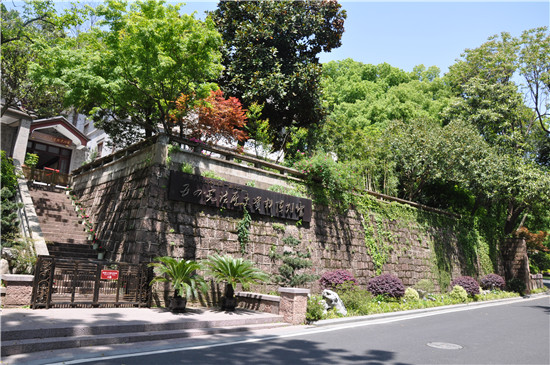
Hangzhou Wusi Xianfa Qicaodi Jiuzhi.
Visitors to the site can explore the meticulously preserved rooms, including Mao’s office and living quarters, where historical artifacts and photographs tell the story of the constitution’s creation. Notably, the exhibition features the original manuscript of the draft, affectionately referred to as the “West Lake Manuscript,” which highlights the principles of governance and law that would later guide the nation.
The Wusi Xianfa Qicaodi Jiuzhi is not just a museum but a center for learning and reflection on the rule of law and governance. It regularly hosts educational programs and exhibitions aimed at promoting awareness of constitutional law and its impact on Chinese society. The site is a powerful reminder of the ideals of democracy and the rule of law that were being established during a transformative period.
As you stroll through the serene surroundings of this historical site, you can appreciate its significance not merely as a relic of the past but as a living part of China’s ongoing journey toward governance and civic engagement. The Wusi Xianfa Qicaodi Jiuzhi invites all visitors to reflect on the past while considering the future of law and democracy in China.
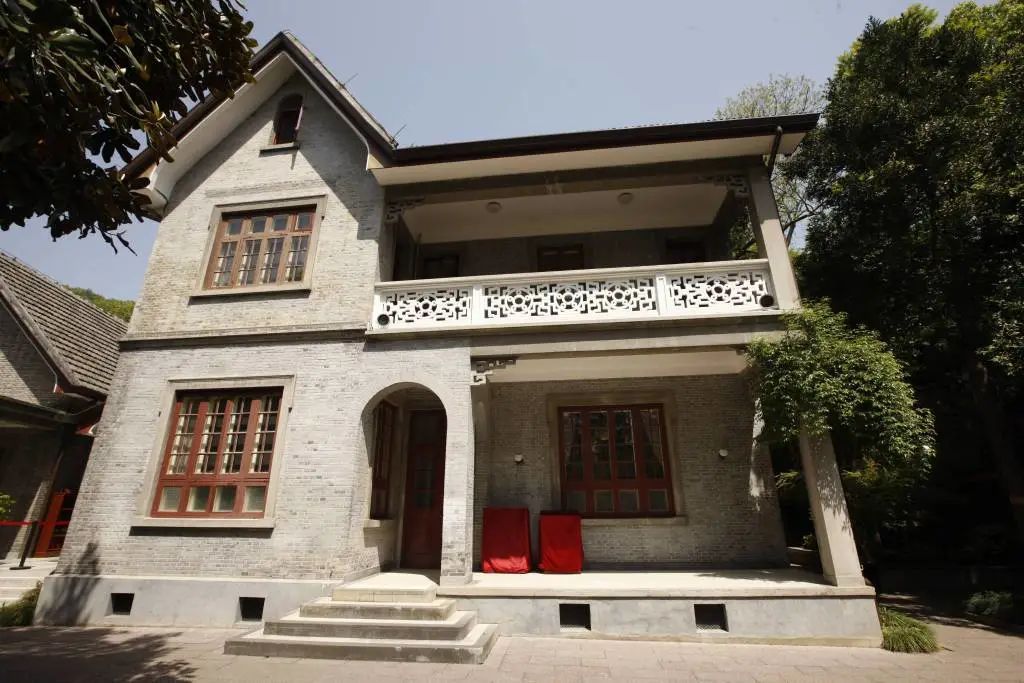
Hangzhou Wusi Xianfa Qicaodi Jiuzhi.
Planning Your Visit: A Practical Guide
Practical Guide to the Hangzhou Wusi Xianfa Qicaodi Jiuzhi
Visiting the Hangzhou Wusi Xianfa Qicaodi Jiuzhi, or the Site of the Drafting of the May Fourth Constitution, offers a unique opportunity to delve into an important chapter of Chinese history. Here’s everything you need to know to make the most of your visit.
Location and Accessibility
The site is situated at No. 30, Beishan Street, in the picturesque Hangzhou area, just a stone’s throw from the famous West Lake. This prime location makes it easily accessible, whether you’re traveling by public transport or private vehicle. The nearest metro station is Longxiangqiao Station (龙翔桥站), which is about a 20-minute walk away. Local buses serve the area, and taxis are readily available for those preferring a direct route.
Opening Hours
The Hangzhou Wusi Xianfa Qicaodi Jiuzhi is open to the public every day from 9:00 AM to 5:00 PM. It’s advisable to arrive early to avoid crowds, especially during weekends and holidays. The last entry is at 4:30 PM, so plan your visit accordingly.
Admission Fees
Entry to the site is generally free of charge, making it an affordable addition to your itinerary. However, special exhibitions or guided tours may have associated fees, so do check in advance if you’re interested in those options.
Exhibition Highlights
Inside the site, you’ll find a wealth of historical artifacts and documents related to the drafting of the first Constitution of the People’s Republic of China, which took place here from December 1953 to March 1954. Key features include:
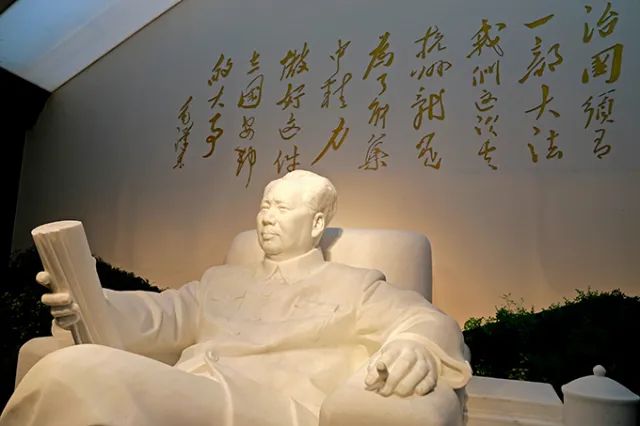
Hangzhou Wusi Xianfa Qicaodi Jiuzhi.
- Original Drafts: Be sure to view the original manuscripts and drafts of the Constitution, which provide insight into the ideological foundations of modern China.
- Interactive Displays: The museum utilizes modern technology to enhance your understanding of the historical context and significance of the Constitution.
- Mao Zedong’s Office: The preserved office space where Mao and his team worked gives a tangible sense of the atmosphere during this pivotal moment in history.
Visitor Tips
- Guided Tours: Consider joining a guided tour to enrich your experience; knowledgeable guides can provide deeper insights into the exhibits and the historical significance of the site.
- Photography: While photography is allowed in most areas, be respectful of any signs indicating restrictions, particularly in sensitive exhibition spaces.
- Nearby Attractions: After your visit, take the time to explore nearby attractions such as the West Lake, the China Communist Party Hangzhou History Museum, or the Zhejiang Xinhai Revolution Memorial Hall, all within a short distance.
Accessibility Features
The site is equipped with facilities for visitors with disabilities, including ramps and accessible restrooms. If you have specific needs, it might be beneficial to contact the site in advance to ensure a comfortable visit.
Cultural Etiquette
As you explore this important historical site, remember to maintain a respectful demeanor, particularly in areas dedicated to memorializing the sacrifices made during revolutionary times. Engaging in hushed conversations and refraining from disruptive behavior will enhance the experience for yourself and others.
Conclusion
A visit to the Hangzhou Wusi Xianfa Qicaodi Jiuzhi is not just a journey into the past but a chance to understand the foundations of modern Chinese governance. With its rich history and thoughtful exhibitions, this site is a must-visit for anyone interested in China’s political evolution. Prepare to be inspired by the resilience and vision that shaped a nation!
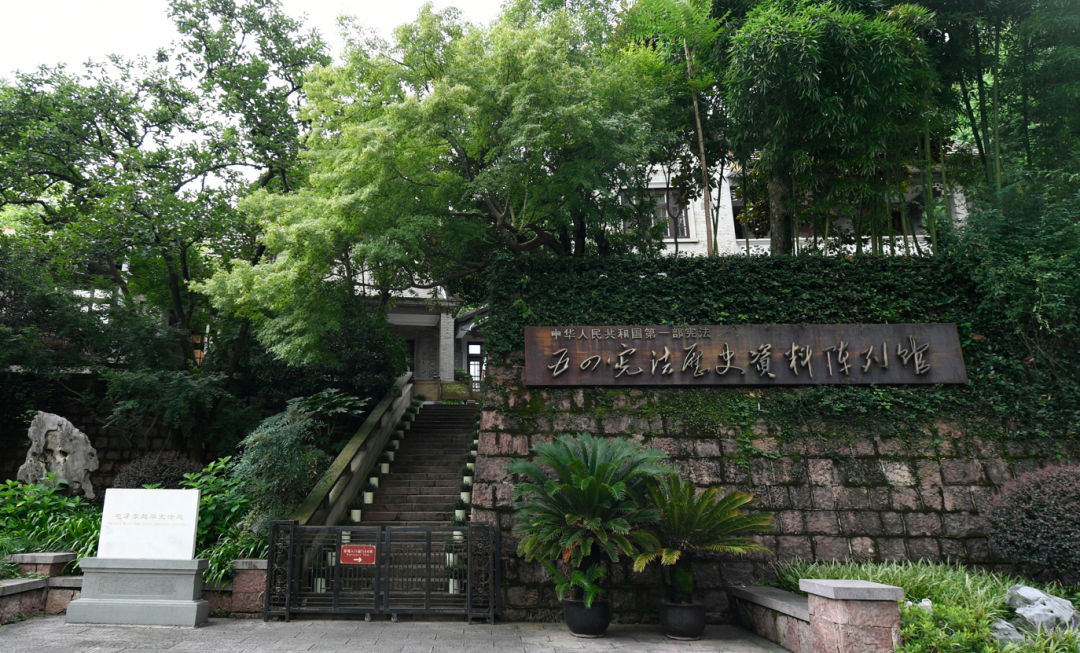
Hangzhou Wusi Xianfa Qicaodi Jiuzhi.
Tickets, Hours, and Booking
Visiting the Hangzhou Wusi Xianfa Qicaodi Jiuzhi (五四宪法起草地旧址) offers a unique glimpse into a pivotal moment in China’s history. As the birthplace of the first constitution of the People’s Republic of China, this site holds significant cultural and historical value.
Ticket Information
-
Admission Fee: Entry to the Wusi Xianfa Qicaodi Jiuzhi is free of charge, making it accessible for visitors eager to learn about this crucial chapter in Chinese legal history.
-
Opening Hours: The site is open to the public from 9:00 AM to 5:00 PM, Tuesday through Sunday. Please note that it is closed on Mondays.
-
Location: The site is located at No. 30, Beishan Street, Xihu District, Hangzhou, conveniently situated near the beautiful West Lake area.
-
Guided Tours: While self-guided visits are encouraged, guided tours are also available upon request. These tours provide deeper insights into the historical significance of the location and the drafting process of the constitution.
-
Educational Activities: The site often hosts educational events, including lectures and workshops, aimed at fostering a greater understanding of constitutional law and the history of governance in China. Check the official website or local listings for upcoming events.
-
Accessibility: The site is wheelchair accessible, ensuring that all visitors can enjoy the historical exhibits and beautiful surroundings.
Whether you’re a history buff or simply curious about China’s revolutionary past, a visit to the Wusi Xianfa Qicaodi Jiuzhi promises an enriching experience that highlights the evolution of modern governance in China.
How to Get There
Getting to Hangzhou Wusi Xianfa Qicaodi Jiuzhi (五四宪法起草地旧址) is straightforward, thanks to the city’s well-developed transportation network. Here’s a comprehensive guide to help you navigate your way to this significant historical site.
By Air
Hangzhou Xiaoshan International Airport (HGH) is the nearest airport, located approximately 30 kilometers from the city center. It serves both domestic and international flights. Once you arrive, you can choose from several transportation options to reach the site:
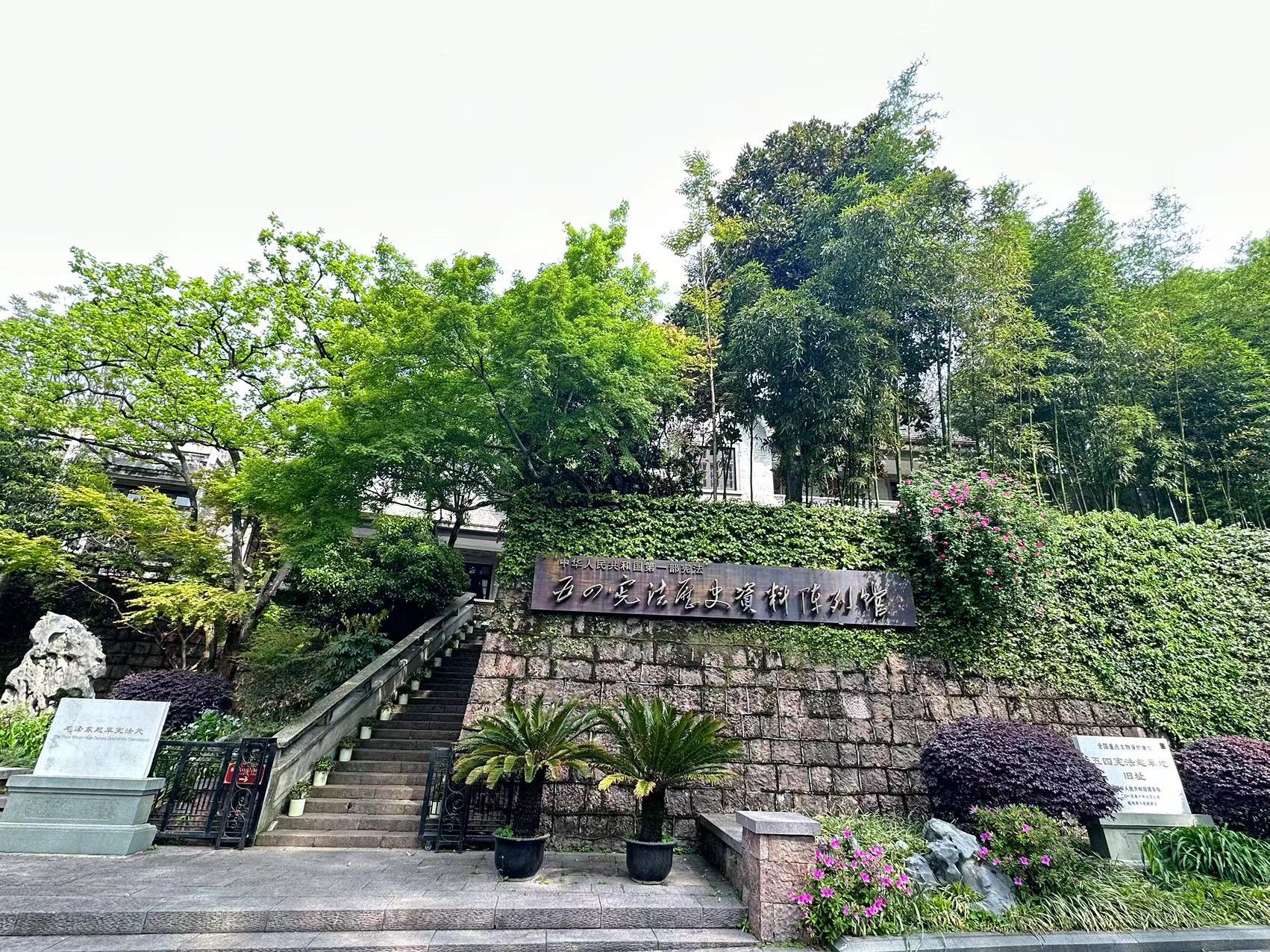
Hangzhou Wusi Xianfa Qicaodi Jiuzhi.
- Airport Shuttle Bus: Direct buses run from the airport to various locations in Hangzhou, including the city center. The journey typically takes about 40-60 minutes.
- Taxi: Taxis are readily available at the airport. A ride to the Wusi Xianfa Qicaodi Jiuzhi will take around 30 minutes, depending on traffic, and costs approximately 100-150 RMB.
- Ride-hailing Apps: Apps like Didi Chuxing are popular in China and offer a convenient way to book a ride from the airport.
By Train
Hangzhou is well-connected by high-speed rail, making it easily accessible from major cities such as Shanghai, Nanjing, and Beijing.
- Hangzhou East Railway Station (东站): This is the main station for high-speed trains. From here, you can take a taxi or public transportation to the historical site.
- Hangzhou Railway Station (火车站): If you arrive at the main railway station, you can catch a local bus or taxi to get to the site.
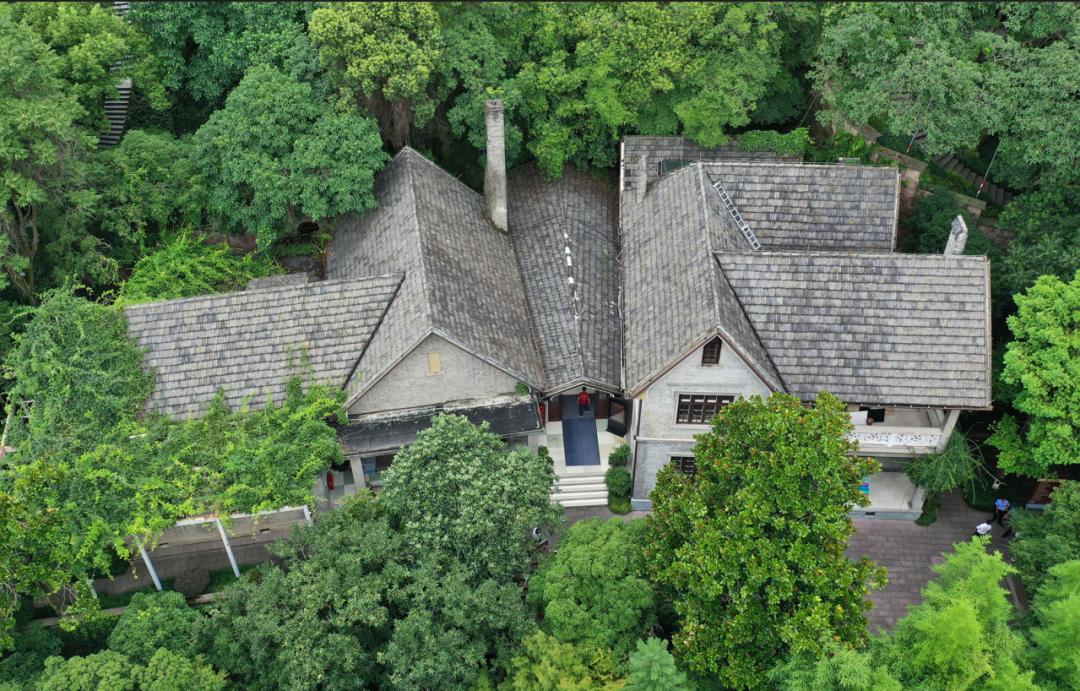
Hangzhou Wusi Xianfa Qicaodi Jiuzhi.
By Public Transportation
Once in Hangzhou, public transport is an efficient way to reach Wusi Xianfa Qicaodi Jiuzhi:
- Metro: The nearest metro station is the Longxiangqiao Station (龙翔桥站) on Line 1. From there, you can take a bus or taxi to the site, which is about a 10-minute ride away.
- Buses: Various city buses connect to the area. Routes 27, 34, and 45 stop near the site. It’s a good idea to have a navigation app handy to track your route.
By Bicycle or Walking
Hangzhou is known for its bike-friendly environment, especially around the West Lake area. If you’re staying nearby, consider renting a bicycle to explore the city at your own pace. The site is located within a scenic area, making it an enjoyable ride.
Tips for Visiting
- Plan Ahead: Check the opening hours of the Wusi Xianfa Qicaodi Jiuzhi and any events that may be happening during your visit.
- Language Assistance: While many signs are in English, having a translation app can help with communication, especially when asking for directions or information.
- Local Etiquette: Be respectful while visiting this historical site; it is a place of significant cultural heritage.
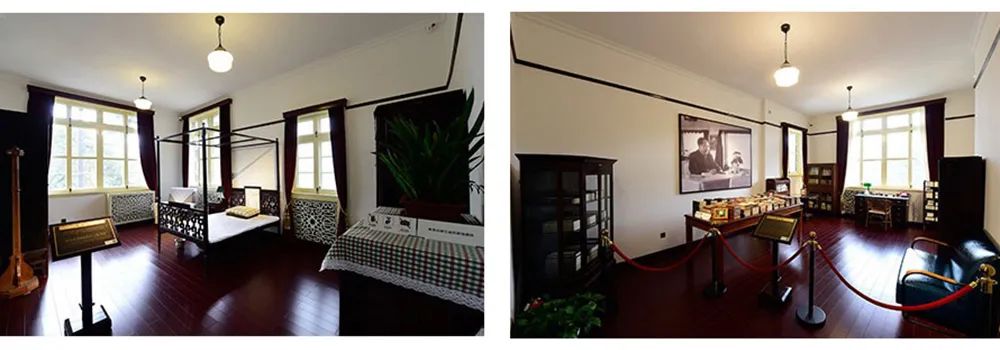
Hangzhou Wusi Xianfa Qicaodi Jiuzhi.
With these transportation options and tips, your visit to Hangzhou Wusi Xianfa Qicaodi Jiuzhi will be smooth and enjoyable, allowing you to immerse yourself in the rich history of modern China.
Local Cuisine and Accommodation
When visiting the historic site of the Drafting Place of the Five-Four Constitution in Hangzhou, you’ll want to immerse yourself not only in its rich history but also in the local culinary scene and comfortable accommodations. Here are some suggestions to enhance your experience.
Culinary Delights
1. Traditional Hangzhou Cuisine:
– Lou Wai Lou (楼外楼): Located near the West Lake, this iconic restaurant is known for its Hangzhou-style dishes, particularly the famous Dongpo Pork. The restaurant itself has a rich history, dating back to the Song Dynasty, making it a perfect spot to enjoy authentic local flavors amidst scenic views.
– Zhi Wei Guan (知味观): Renowned for its traditional Hangzhou snacks, this eatery offers a casual dining experience. Don’t miss the Longjing Shrimp and the freshly made dumplings, which truly capture the essence of Hangzhou cuisine.
– Huanglong Restaurant (黄龙饭店): A great choice for those looking to dine in a more upscale environment. It offers a beautiful view of West Lake and specializes in exquisite dishes that highlight local ingredients.
2. Tea Houses:
– Meijiawu Tea Village: While not a restaurant per se, this area is famous for its Longjing tea. Enjoy a cup of freshly brewed tea while savoring traditional snacks in one of the many tea houses that line the hillside. The serene atmosphere and beautiful surroundings make it a delightful spot to relax.
– Yuyuan Tea House (榆园茶室): Nestled in the heart of West Lake, this tea house is perfect for those who wish to experience the local tea culture. Enjoy tea tastings and light snacks while taking in the picturesque lake views.
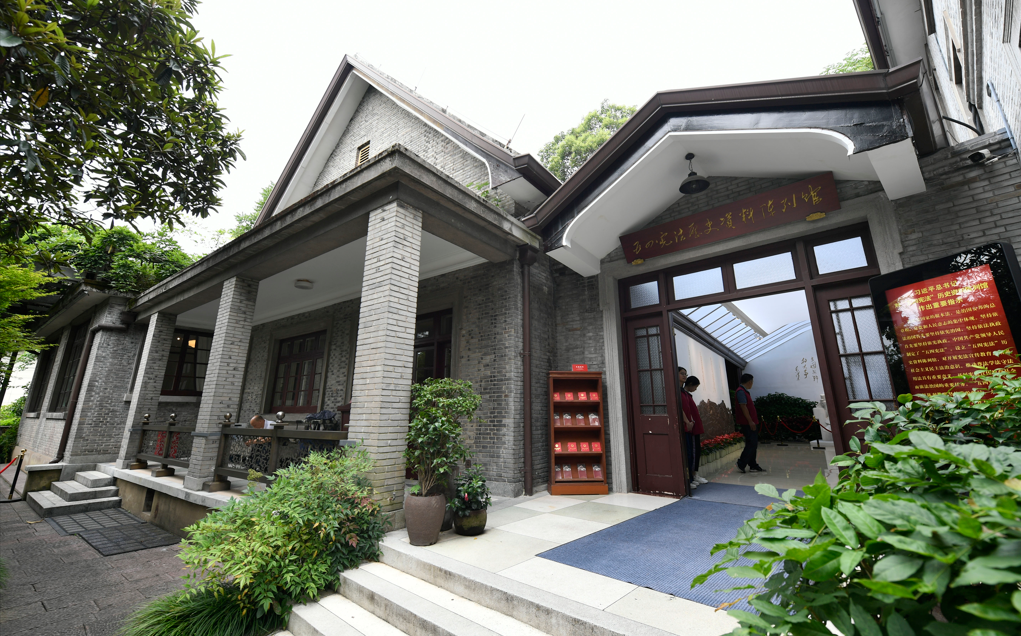
Hangzhou Wusi Xianfa Qicaodi Jiuzhi.
Where to Stay
1. Luxury Accommodations:
– Four Seasons Hotel Hangzhou at West Lake: This luxurious hotel offers stunning views of West Lake and features a blend of traditional and modern Chinese design. With exceptional service, a tranquil spa, and gourmet dining options, it’s an idyllic retreat after a day of exploring.
– The Ritz-Carlton, Hangzhou: Located on the banks of the West Lake, this hotel combines elegance with comfort. Guests can enjoy spacious rooms, a world-class spa, and exquisite dining experiences featuring both local and international cuisine.
2. Boutique Hotels:
– The Nook Hotel: A stylish boutique hotel that provides a cozy atmosphere and personalized service, located close to the cultural sites. It’s a fantastic base for exploring the historical aspects of Hangzhou.
– Liuhe Hotel: This charming hotel captures the essence of traditional Chinese architecture while providing modern amenities. Located near the Drafting Place of the Five-Four Constitution, it’s ideal for those wanting to stay close to historical landmarks.
3. Budget-Friendly Options:
– Hangzhou Hostels: There are several hostels in the city that cater to budget travelers. Places like Mingtown Etour Youth Hostel offer a vibrant atmosphere with opportunities to meet fellow travelers, plus convenient access to public transport.
– Economy Hotels: Chains such as Ibis Hotel and Hanting Hotel provide clean, comfortable accommodations at reasonable prices, making them great options for travelers looking to save.
With a range of culinary delights and accommodations to suit every budget, your visit to Hangzhou and the Drafting Place of the Five-Four Constitution will be both enjoyable and memorable.
Frequently Asked Questions
Frequently Asked Questions
1. What is the significance of the Hangzhou Wusi Xianfa Qicaodi Jiuzhi?
The Hangzhou Wusi Xianfa Qicaodi Jiuzhi, or the site where the draft of the first constitution of the People’s Republic of China was created, is a historical landmark. It was where Mao Zedong and the drafting committee worked from December 1953 to March 1954 to write the initial draft of what would become the 1954 Constitution. This marked a pivotal moment in China’s constitutional history.
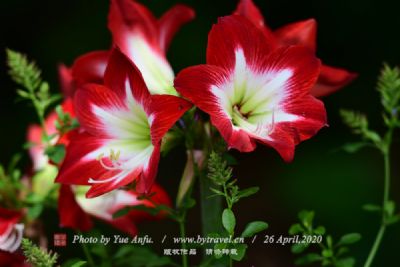
Hangzhou Wusi Xianfa Qicaodi Jiuzhi.
2. Where is the site located?
The site is situated at No. 30, Beishan Street, in the West Lake District of Hangzhou, Zhejiang Province, China. It is conveniently located near the scenic West Lake, making it accessible for visitors.
3. What can I expect to see at the site?
Visitors will find a well-preserved villa that served as the drafting site. The venue features historical exhibits, including photographs, original documents, and artifacts related to the constitution’s drafting process. The rooms have been maintained to reflect their historical significance, including a recreation of Mao Zedong’s workspace.
4. Are there guided tours available?
Yes, guided tours are often available at the site. These tours provide in-depth information about the drafting process of the constitution, the historical context, and the key figures involved. It’s advisable to check in advance for tour availability and schedule.
5. What are the opening hours of the Hangzhou Wusi Xianfa Qicaodi Jiuzhi?
The site typically opens daily, but specific hours may vary. It’s recommended to check the official website or local resources for the most current opening hours before planning your visit.
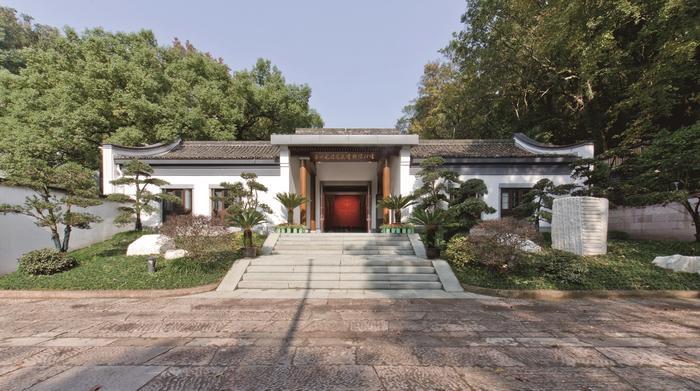
Hangzhou Wusi Xianfa Qicaodi Jiuzhi.
6. Is there an entry fee to visit the site?
Entry to the Hangzhou Wusi Xianfa Qicaodi Jiuzhi is usually free, but it’s a good idea to confirm this before your visit as policies can change.
7. Can I take photographs inside the site?
Photography policies can vary, so it’s best to inquire upon arrival. Generally, photography is allowed in public areas, but there may be restrictions in certain exhibition rooms.
8. Are there any nearby attractions I should consider visiting?
Yes, the site is close to other historical and cultural attractions, including the China Communist Party History Museum and the West Lake itself, renowned for its picturesque scenery. Exploring these sites can provide a more comprehensive understanding of Hangzhou’s rich history and culture.
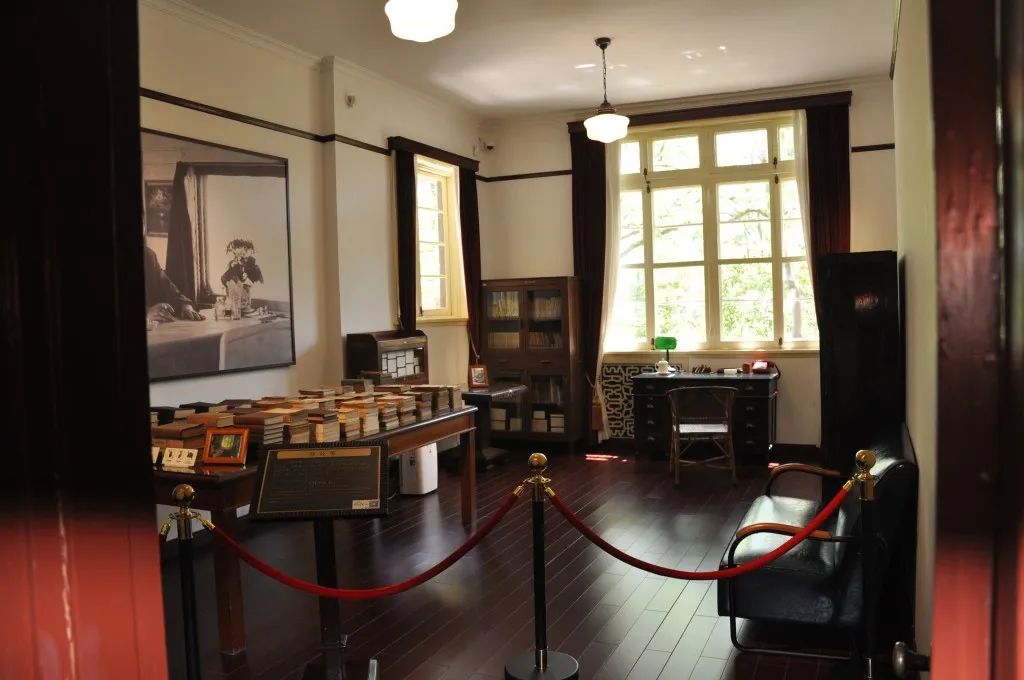
Hangzhou Wusi Xianfa Qicaodi Jiuzhi.
Final Thoughts on Your Trip
Visiting the Hangzhou Wusi Xianfa Qicaodi Jiuzhi is not just a journey through history; it’s an invitation to reflect on the enduring spirit of innovation and the quest for justice that shaped modern China. The site where the first constitution of the People’s Republic of China was drafted stands as a testament to the resilience and determination of those who sought to lay a foundational framework for governance and civil rights.
As you wander through the halls of this historic venue, you will encounter artifacts and documents that tell the story of a pivotal moment in history, where ideals of democracy and law were born amid the tranquil beauty of Hangzhou’s landscapes. This experience serves as a reminder of the power of collective effort and the importance of upholding the rule of law in our societies today.
Whether you are a history enthusiast, a student of political science, or simply a curious traveler, the Wusi Xianfa Qicaodi Jiuzhi offers a unique opportunity to connect with the ideals that continue to resonate in our lives. Let the echoes of the past inspire you to engage with the present and envision a future grounded in justice and equality. Embrace this journey, and carry the essence of this historic site into your own life and endeavors.
